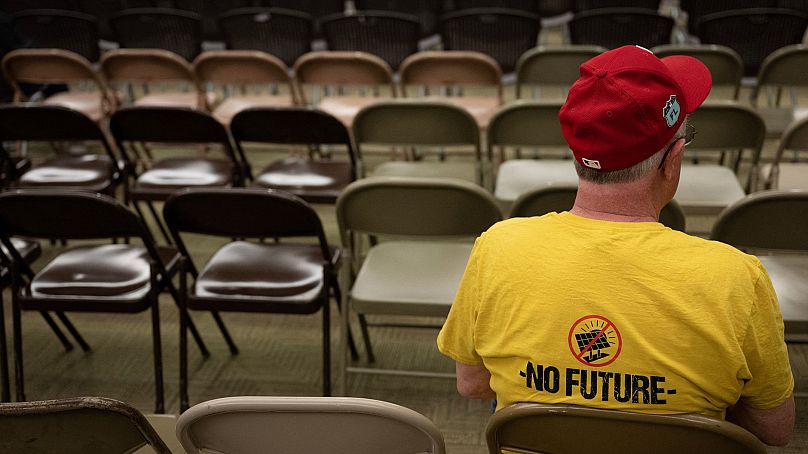A solar project in Missouri, US has put local farmers on alert and raised concerns about their lifestyle.
Worries about losing cropland to solar farms have led to an emerging opposition against what is being called a ‘solar invasion’ in Missouri in the US.
 ADVERTISEMENT
ADVERTISEMENT
 ADVERTISEMENT
ADVERTISEMENT
From her century-old home, Susan Burns has watched the sunset over her cousin's field every day for 75 years in Callaway County, Missouri. Now her cousin has agreed to have solar panels installed on the land and an unhappy Burns has decided to stand up against the project.
Foreseeing vast expanses of solar farms replacing cropland, Burns has begun recruiting other community members with similar concerns. "I lose my view. I lose my health. I lose my safety." Burns did not expand on what health or safety risks solar farms pose.
With a dozen other volunteers, Burns organised a public meeting to sound an alarm. As attendees arrived, a petition awaited their signatures, and activists invited them to study a land registry map showing proposed solar farms.
"Huge solar companies are coming in, taking our farmland, ruining our agricultural community, taking away all the agri-businesses," said Burns. "The loss of 10,000 acres [40,000 km2] of land in Callaway County will bankrupt many of the agricultural businesses around."
Are large solar farms a real concern?
Ranger Power, a renewables company, has plans to set up a 250-megawatt project which would power nearly 35,000 homes. There has been a months-long conversation going on between county officials and residents about the €275 million investment.
Locals are concerned about the proximity of the installations to their homes or daycare centres calling the**solar farms "industrial complexes with high voltage"**.
Another concern is the lack of tax revenue that goes to the county. In Missouri, solar panels are currently exempt from local taxes. Residents are also concerned the value of their properties dropping if they are surrounded by solar farms.
Peter Endres, development director with Ranger Power, met residents at the North Callaway School Board meeting and assured them that solar panels would be at least 45 metres from any homes. He added that the land could actually be healthier at the end of the project, as native plants and pollinators grow in the soil and rebuild nutrients. Also, the panels would be removed without trace in 30-35 years, at the end of the project. The company has also shown interest in paying funds to the county annually for the duration of the project.
While some of the community is still not convinced, others have accepted the offer, even though the issue has turned friends into foes and even divided families.
"Farming is very good right now [...] but I can remember times when it wasn't so good," says farmer Michael Graves. "It's going to be a steady form of income, maybe into my retirement or for future generations also," he adds.
"It's free money," said cattle farmer Webb, who is also thinking about his retirement and about the day when some of his four children will take over the farm.
Threat to identity
The US electricity grid generates 60 per cent of its power from fossil fuels. But President Joe Biden is trying to turn the tide toward renewable energy.
Grassroots protests against solar projects "will significantly delay America's commitment toward getting to net zero," said Jungwoo Chun, a lecturer on climate and sustainability at the Massachusetts Institute of Technology.
"Farmers have a particular identity," added Doug Bessette, an assistant professor at Michigan State University and co-author of several studies on the matter. "It's hard work, it's dirt under your fingernails. And now if that land is... just basically laying fallow with solar panels on it for 20 years, that's a disruption to identity."
In northern Callaway County, word is that the first shovels for one of the three solar farms could come as early as this summer, although that is not confirmed by the Ranger Power renewable energy company.
Watch the video to learn more about this story.











